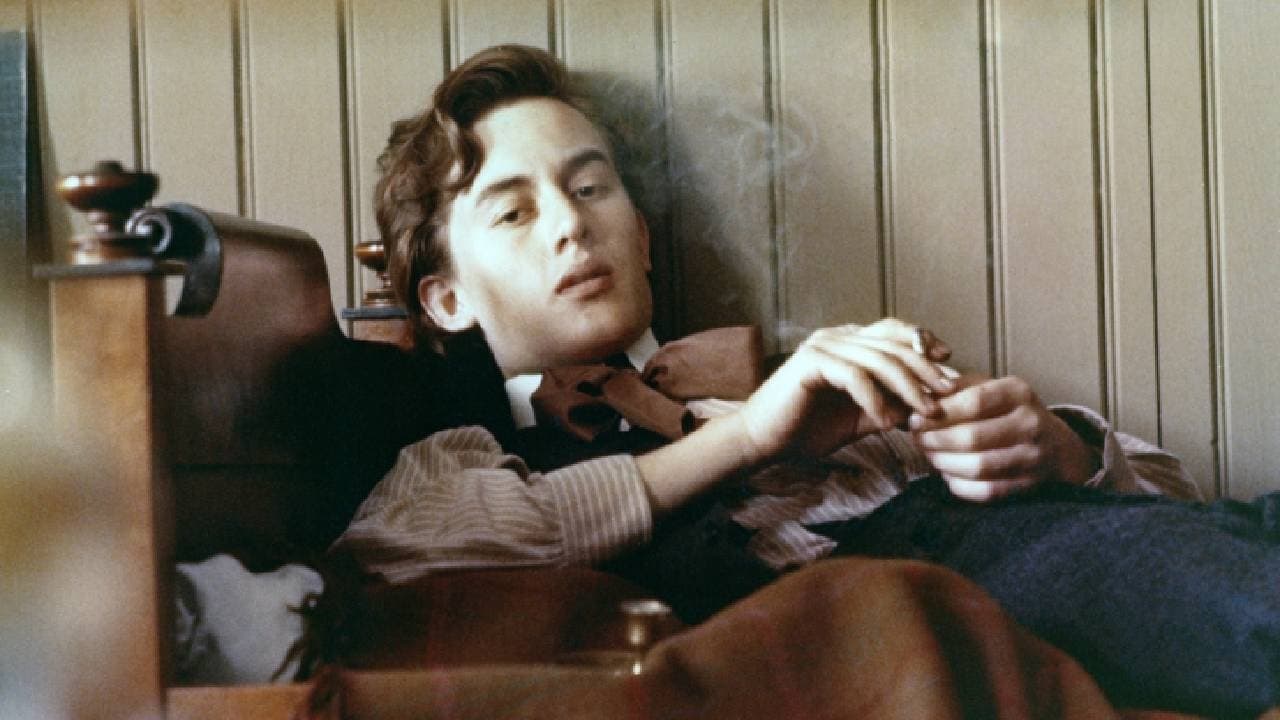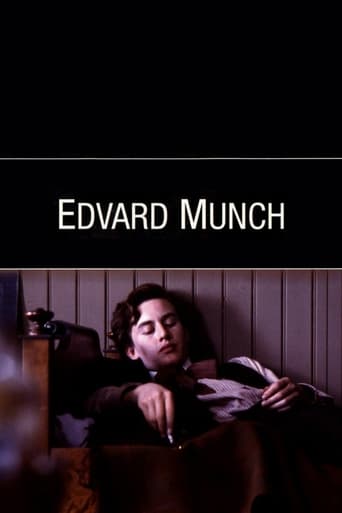gavin6942
Following a rough chronology from 1884 to 1894, when Norwegian artist Edvard Munch began expressionism and established himself as northern Europe's most maligned and controversial artist, the film also flashes back to the death from consumption of his mother, when he was five, his sister's death, and his near death at 13 from pulmonary disease.This film is amazing. Not many artists get a thorough biopic, but here Munch is given one in detail and at almost three hours in length. Of all artists, he seems an unlikely choice. Yes, he is known, but not as well known as some of the other artists mentioned in the film (such as van Gogh). For most, he is probably only really associated with "The Scream".Here we get a great biography, a deeper look at art history, but also get a nice look at European history, with Germany and Russia ever in the background, though never a key part of the film.
ursulahemard
Very interesting and innovative new approach of movie-making. A documentary within a biopic: Norwegian actors representing and picturing Munch, Munch's family, friends, fiends and contemporaries (speaking in Norwegian with subtitles) filmed in a journalistic way, whilst a narrator takes us through in English being sometimes Munch himself or sometimes as an instructor. The chronology of the living facts is juxtaposed by the past with a deep insight of Munch's emotional evolution and disturbances. One does learn a lot about the artist and his oeuvres. Don't expect a motion picture with a plot and you must be interested by Munch himself to be able to enjoy this throughly. Keep in mind that it's 3h30 long. Watchable for adolescents.
tintin-23
Munch has long been one of my favorite painters, if not my favorite, since I was seventeen years old. I love films (Angelopoulos, Tarkovsky, Fellini, Antonioni, Bergman, you name it.). Therefore, it was not a hard decision for me to forgo a particularly beautiful afternoon in the outdoors for being locked up for three hours in the AC atmosphere of a movie theater. What a mistake, and what a disappointment! Where was the editor (sorry, it was Watkins) for this film? I am amazed that director/editor Peter Watkins should so obviously confuse the television medium for cinema. The film is about one hour too long. It is repetitive, grossly uneven in its presentation of the painter's life (half-life, would be a more appropriate term). It seems that Watkins went on and on, repeating himself, and suddenly, looking at his watch, realized he had to rush through the remainder of Munch's life to finish the film. He rushed and still did not make it past 1909. Why ignore Munch, the man and his work, after 1909? But I guess this is the director's prerogative, to show what he wants of Munch's life.In general, the cinematography is good, with delicate colors. The representation of the period was well researched and comes across as authentic. The hand-held camera works well most of the time, with beautiful close-ups. In some scenes, such as the socio-political discussions in the cafes, its unsteadiness underlines the chaos of the expounded philosophy. There are even moments of greatness, such as when Munch is painting "Death in the Sickroom." Unfortunately, more often than not, the camera is shaky for no apparent reason. But there are far too many cuts, so many it makes one dizzy at times just watching, and they interfere with the narrative thread of the story. Worse, the contrivance of the cuts is astonishingly predictable -- after a while, I knew that the instant any character's eyes looked directly into the camera, the scene was going to quickly cut to something else. Geir Westby's performance, whose likeness to Munch is remarkable, is not convincing: one does not get any insight regarding Munch's internal demons, or any real sense of the artist's passion, jealousy, and repression. The dreadful environment, familial, social and political, seems practically divorced from Munch's life, as the artist appears to stand apart from it all, an outside observer. His very critical relationship with his father is hardly touched upon, except for a (too often) repeated short scene at the dining table, when Munch was still young. Munch's complex and ambiguous feelings about women in general, which shaped so much of his work, are not even touched upon, except for his particular relationship with Mrs. Heiberg (Gro Fraas). Waltkins' decision to present Munch's biography more like a docu-drama could have been rewarding, except for the fact that he was not able to integrate the historical document with the subject matter.It all boils down to the editing, which is just AWFUL. Believe me, I say this not because the film is three-hours long (Angelopoulos' and Tarkovsky's films do not exactly produce short subjects), but because when a director has nothing new to say, and keeps repeating himself, it quickly becomes tedious and boring. Most likely, the original television production was shown in three one-hour installments. Therefore, many of the numerous flashbacks were justified, not only to somehow refresh the memories of the viewers who might have seen one or two previous episodes in the preceding weeks, but also to "bring aboard" new viewers. But in the continuum of the film, these same flashbacks become useless, even counter-productive, unnecessarily weighing down the viewer with back-story.Please note that I did not follow many of my fellow spectators who left the theatre early. I suffered through to the ending credits.
caburns90
This is one of the most moving, experimental films I have ever seen. Peter Watkins' political understanding of the times and his compassion for the struggling, alienated artist is superb. He has a unique method of linking the present to the painter's traumatic past, namely the deaths of his mother and sister from tuberculosis, when he was a boy. The camerawork and close-ups of individual faces is excellent. Munch's grief, when he loses the woman he loves, leads to his best works and a premature death. No other director has made a film about the inner and outer worlds of an artist as well as this. I highly recommend the film.

